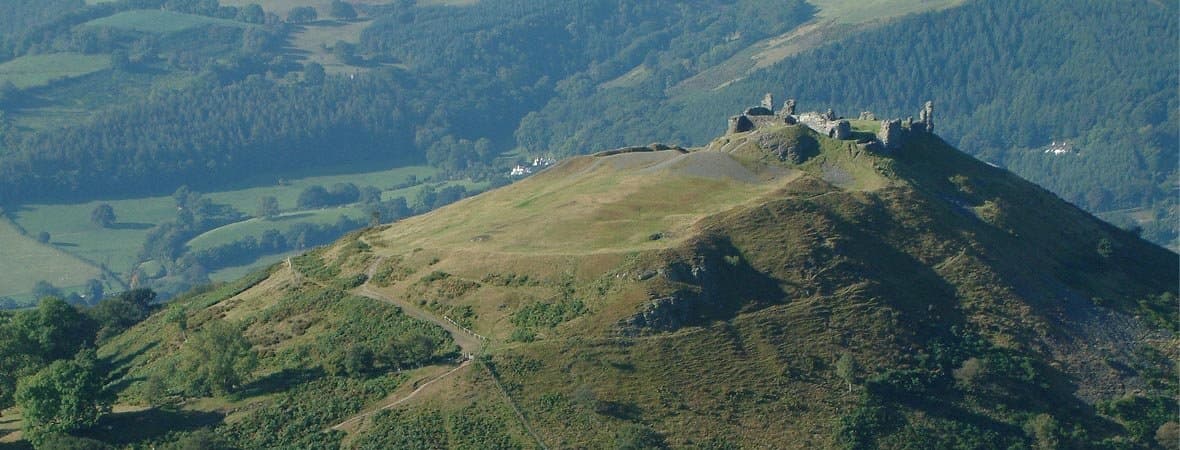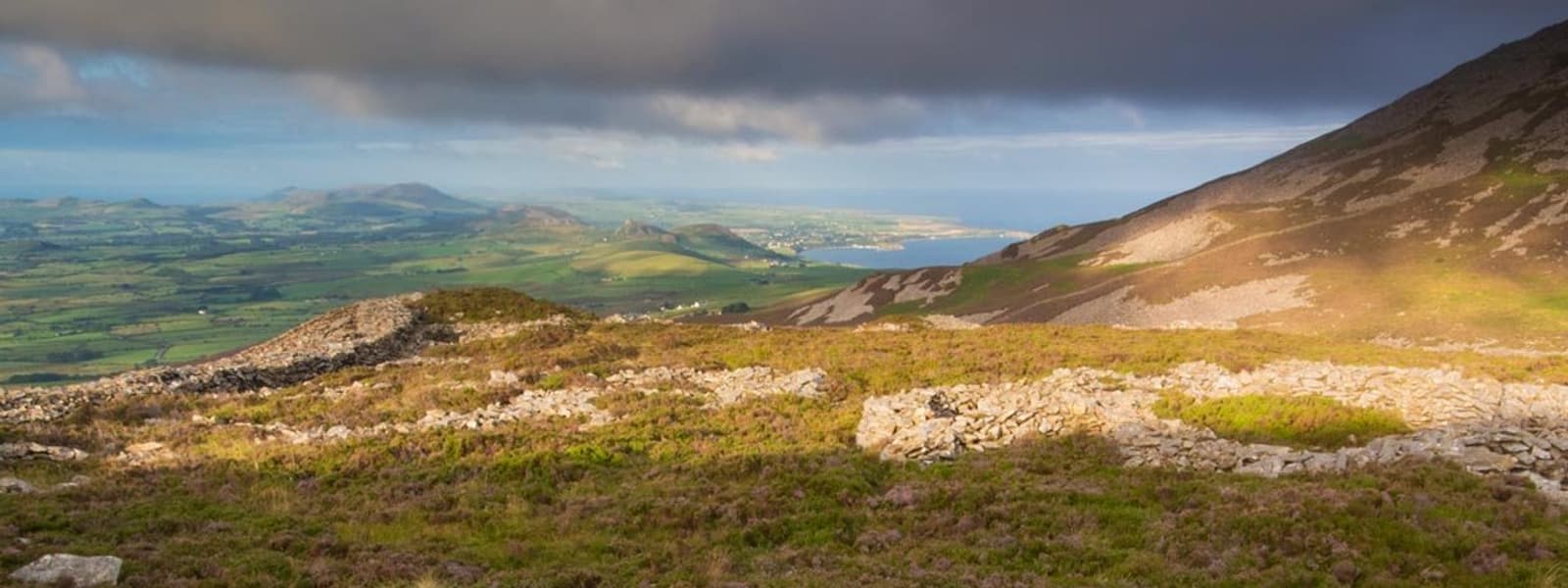Wales urged to maintain its lead in sustainable landscape management
This week our Chair, Philip Hygate wrote to the Chair of Natural Resources Wales, Sir David Henshaw about the proposals in their Case for Change consultation, expressing concerns regarding their proposed restructuring plans.
These changes, designed to address financial pressures, could have serious repercussions for Wales' natural environment and our collective connection to it. While we recognise the challenges NRW faces, the scaling back of resources dedicated to outdoor access, recreation, and landscape management is particularly worrying.

Castell Dinas, Clwydian Range and Dee Valley National Landscape
Wales is home to some of the most stunning landscapes in the world, from our rugged coastlines to our vast national parks and protected areas. These landscapes are more than just beautiful—they are central to our national identity and the well-being of our communities. NRW has played a crucial role in protecting and promoting our natural resources, ensuring that people can engage with and enjoy them. Unfortunately, the proposed reductions in funding for outdoor access and recreation risk weakening this connection.
We have seen, time and again, that providing people with opportunities to interact with nature is essential to fostering a sense of stewardship and care for the environment. Scaling back these activities at a time when the climate and biodiversity crises are accelerating seems like a step in the wrong direction. Furthermore, NRW’s decision to discontinue its dedicated education and health teams, as well as its green infrastructure programme, removes key avenues through which the public can learn about and contribute to the sustainable management of our landscapes.
Wales has certain obligations under the European Landscape Convention (ELC), which commits signatory countries to protecting and managing their landscapes in partnership with communities, ensuring that they are accessible, sustainable, and resilient. NRW’s proposed reductions in landscape duties could jeopardise Wales' ability to fulfil these commitments, undermining the nation's credibility on the international stage.
Wales has long prided itself on being a leader in sustainable landscape management. However, if we reduce our efforts to engage with and manage our landscapes effectively, we risk losing this hard-won status. Landscapes are not just about scenic views—they are essential to our cultural heritage, public health, and environmental resilience.
A balanced approach to natural resource management is possible, even in the face of financial constraints. Rather than scaling back on crucial activities that connect people with nature, we should be finding ways to enhance them, recognising the long-term social and environmental benefits they provide.
The National Landscapes Association urges NRW to reconsider these proposals and to continue prioritising the vital work of landscape management and public engagement. These are the pillars on which Wales’ environmental future stands, and we cannot afford to weaken them.
Wales has the opportunity to remain at the forefront of landscape conservation and environmental leadership. Let’s ensure that our landscapes—and the connections they foster between people and nature—continue to thrive for generations to come.

The Skerries, Ynys Mon/Anglesey National Landscape
